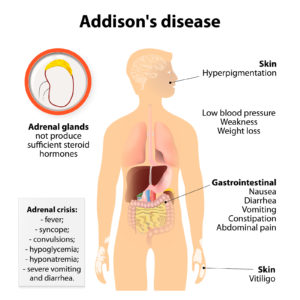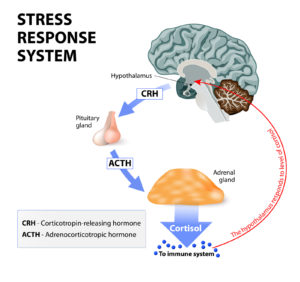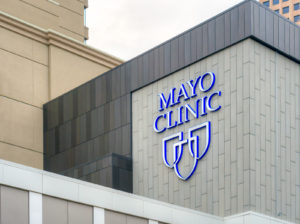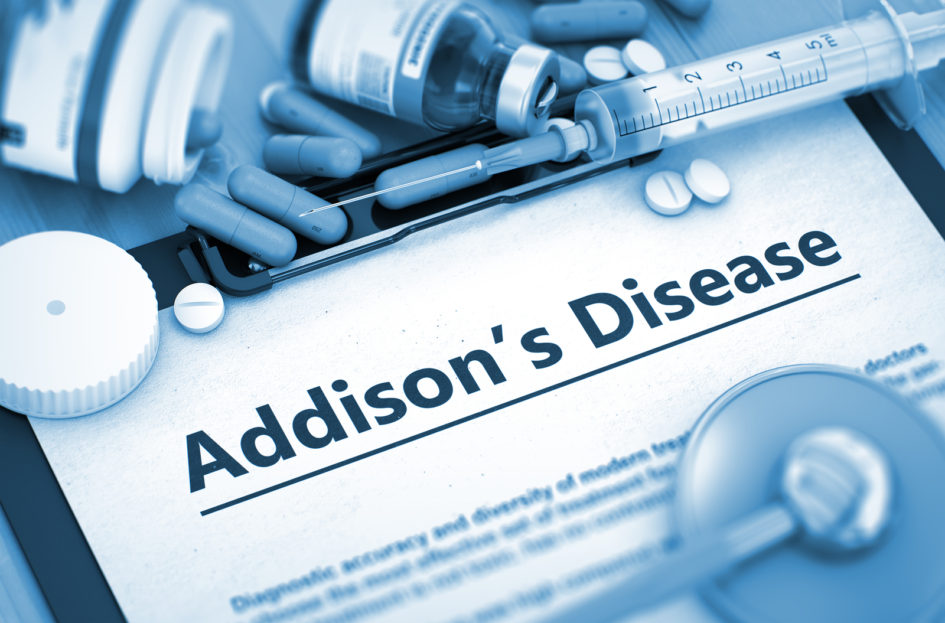With only one in 100,000 people being diagnosed with Addison’s disease, many find this rare condition both overwhelming and hard to understand. Unlike other diseases that have multiple research options, various support groups, and a plethora of experts to choose from, those suffering from Addison’s disease can often times feel left out in the cold. With that in mind, this article is designed to help shed some light on the subject, offer some additional support channels, and provide you with the information you need when facing or researching the disease.
About Addison’s Disease
The body regulates various functions based on hormones, and the adrenal glands are one of several that produce and help regulate the body.  Addison’s disease is caused by the lack of adrenal gland hormone production, causing the body to become deficient in the production of the hormone called, “cortisol”.
Addison’s disease is caused by the lack of adrenal gland hormone production, causing the body to become deficient in the production of the hormone called, “cortisol”.
Cortisol is responsible for a variety of functions within the body, including how the body deals with stress, regulates your protein, carbohydrate, and fat conversion, maintaining your blood pressure and cardiovascular performance. When your body does not produce enough cortisol, that is a condition called, “hypocortisolism”.
Hypocortisolism is mostly attributed directly to the adrenal glands themselves. Nearly 70% of patients diagnosed with the disease also suffer from an autoimmune disease causing the body to attack the adrenal glands, destroying the outer layer of the gland, resulting in the malfunction of the gland.
Other potential dangers that can affect the adrenal gland are if someone has tuberculosis, or HIV, which makes it more difficult for the body to fight off long lasting infections. Even cancer has been attributed to triggering the disease as cancer cells move throughout the body and begin harming the adrenal glands.
Symptoms of Addison’s Disease
 Understanding the signs of the disease can be the difference between living a normal life and struggling with your health. Here are some of the more common ailments associated with the disease:
Understanding the signs of the disease can be the difference between living a normal life and struggling with your health. Here are some of the more common ailments associated with the disease:
- fatigue and tiredness
- darkening in skin color
- weight loss or decreased appetite
- a decrease in heart rate or blood pressure
- low blood sugar levels
- fainting spells
- sores in the mouth
- cravings for salt
- muscle weakness
- nausea
- vomiting
- irritability or depression
Treatment Options
Unfortunately, Addison’s disease is not a condition that can be cured, and requires life long supplements to provide your body with the right amount of hormones needed to properly function. Similar to Thyroid disease, treatment includes taking medications to balance the body’s hormone levels.
Medications: Most people who suffer from Addison’s disease will be prescribed a combination of prescriptions including glucocorticoids medications, to reduce/stop inflammation, as well has hormone supplements to replenish your bodies natural levels, such as hydrocortisone or cortisone acetate, typically taken orally. If a patient has an emergency, or during surgery, then cortisone is introduced to the body intravenously.
Most physician’s also recommend having an “emergency” kit on hand when managing your condition. The kit should contain inject-able steroids, (*speak to your doctor on dosage*), sterile needles, and syringes. Addison Organization UK goes into detail outlining who prescribes the emergency kit, what’s included, how and when to use the injection.
Alternative Therapies: While one cannot supplement their prescribed inflammation and hormone treatments, one can work to reduce their stress levels through alternative medicine.

Stress is a main cause of high levels of cortisol secretion. Cortisol is a hormone produced by the adrenal cortex.
Since stress is a major factor in the disease, finding a group that offers meditation, massage therapy, or even acupuncture are great ways to help maintain your stress level and keep your disease under control.
Top Ranked Medical Facilities
Finding the right doctor to help manage your symptoms and live a full life after being diagnosed with Addison’s disease is key. Unfortunately, many find it difficult to locate said support facilities and doctors so we wanted to provide a little guidance when narrowing your search.
Since Addison’s disease is categorized in the “endocrine system” the first source should be an endocrinologist. Here are some of the top ranked Endocrine Hospitals in the United States according to US News. “The rankings are based on The U.S. News analysis of hospitals including data from nearly 5,000 centers across multiple clinical specialties, procedures and conditions. Scores are based on a variety of patient outcome and care-related factors, such as patient safety and nurse staffing.” 
- Johns Hopkins Hospital – Baltimore, MD
- Mayo Clinic – Rochester, MN
- Massachusetts General Hospital – Boston, MA
- Cleveland Clinic – Cleveland, OH
- UCSF Medical Center – San Francisco, CA
Support Groups
 While finding the right doctor to work with is mandatory, finding a support group that can help you deal with the disease on a daily basis is also very helpful. By sharing your experiences with others, relating to one another, and hearing first hand accounts of how others deal with the disease can not only help you cope with your condition, but also relieve the amount of stress and anxiety one may face when coming to terms with the disease.
While finding the right doctor to work with is mandatory, finding a support group that can help you deal with the disease on a daily basis is also very helpful. By sharing your experiences with others, relating to one another, and hearing first hand accounts of how others deal with the disease can not only help you cope with your condition, but also relieve the amount of stress and anxiety one may face when coming to terms with the disease.
Adrenal Insufficiency United is such a group offering personal advice, connections, blogs and various websites for those looking to connect with other individuals suffering from the disease. Their mission: “Adrenal Insufficiency United is committed to enhancing the lives and health of our friends and family affected by adrenal insufficiency. We will do this by raising awareness, providing support, and working to ensure emergency protocols are in place to treat adrenal crisis in all settings.” They also offer a list of non-profits that lend a hand to those in need including organizations such as CAH is US, ADL Life, Global Genes, and RDLA.
Living with Addison’s Disease
Although extremely rare, Addison’s disease is a manageable condition that can be treated and still offer one a full and exciting life. In fact, President John F. Kennedy was diagnosed with the disease, which was revealed after his election in 1960.  His condition was also attributed to his hypothyroidism according to his navy medical records. Other prominent figures diagnosed with the disease include popular singer, Helen Reddy, artist Ferdinand Louis Schlemmer, and one of Canada’s top gymnasts, Nathan Gafuik.
His condition was also attributed to his hypothyroidism according to his navy medical records. Other prominent figures diagnosed with the disease include popular singer, Helen Reddy, artist Ferdinand Louis Schlemmer, and one of Canada’s top gymnasts, Nathan Gafuik.
While living with Addison’s disease can be a challenge, by making sure that you are visiting with your doctor frequently, getting regular check ups to confirm your hormone levels, and managing your stress properly, many people find that the disease has minimum to mild impact on their future lives and goals. So if you are suffering from Addison’s disease, or know someone who has recently been diagnosed, know that there are support groups available, top rated physician’s in the country, and alternative options to help you deal with the condition.








Leave a Reply